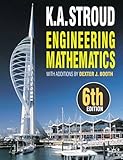https://www.amazon.co.uk/Foundation-Mathematics-K-Stroud/dp/...
https://www.amazon.co.uk/Engineering-Mathematics-K-Stroud/dp...
Are we talking about math for social studies majors, engineers, physicists, economists or mathematicians?
For example, there are books like [0] for engineers which serve as a boot camp of sorts. There are no theorems, proofs or deep math in it. There are many different kinds of engineers, so books like this don't include everything an engineer needs to know. For instance, there's no automata or group theory in [0]. It has a part at the beginning called Foundation Topics which could serve as "all the high school math one needs". In fact, this whole book could probably serve as "all the math an advanced high school student needs".
There are books like [1] for physicists. They are meant to introduce physics majors to a wide array of math topics in a relatively pain-free way. This book is much more rigorous and contains a LOT more material than [0]. Basically, a theoretical minimum for a physics major.
Economics majors also get somewhat rigorous math load where measure theory features a lot more prominently than it does in other majors (except mathematics proper).
List of subjects for math majors vary from place to place, but you'll have much easier time down the road if you master the (rigorous) rudiments of linear algebra (vector spaces), group theory, number theory and real analysis. Of course, knowing more math (say topology, complex analysis, category theory, combinatorics etc) is always good.
Before you get started with math for mathematicians, you'll want to learn their jive. A good intro is [2]. It's free and a really nice book. Another really nice book with non-existent pre-reqs is [3].
A pitfall that awaits a lot of people new to math is a concept of "multivariable calculus". This concept is a mess and means everything to everyone. Oftentimes it means surface level discussion of concepts in scalar fields (functions from R^n to R) and a little bit of talk about differential geometry of curves and surfaces (functions from reals and planes to R^n). The treatment is often not rigorous and n is limited to 2 and 3. After this laughable bullshit, one is thought ready to jump straight into the rigorous analysis of manifolds, granted they know a bit of real analysis. This is like jumping from 3rd grade straight to 9th grade. Along the way the most important thing missing is the rigorous treatment of vectors fields (say, at the level of Rudin). Some nice books here include [4]. Since diff geo (in particular, that of curves and surfaces) is its own thing entirely and there are a lot of really nice books for that like [5]. Also, note there's a nice new intro to "manifolds and stuff" [6] which is like what's calculus is to analysis.
Before I forget, most intro to stats books are written for science majors and are entirely inadequate for math majors, but there are elementary intro to stats books for math majors like [7].
Originally, I wanted to write a more fleshed out and huge comment, but I am running out of time.
Good Luck.
[0] Engineering Mathematics by Stroud/Booth
https://www.amazon.com/Engineering-Mathematics-K-Stroud/dp/0...
https://www.amazon.com/Advanced-Engineering-Mathematics-Kenn...
[1] A Course in Modern Mathematical Physics: Groups, Hilbert Space and Differential Geometry by Peter Szekers
https://www.amazon.com/Course-Modern-Mathematical-Physics-Di...
[2] Book of Proof by Richard Hammack
https://www.people.vcu.edu/~rhammack/BookOfProof/
[3] Linear Algebra: Step by Step by Kuldeep Singh
https://www.amazon.com/Linear-Algebra-Step-Kuldeep-Singh/dp/...
[4] An Introduction to Analysis by Wade
https://www.amazon.com/Introduction-Analysis-4th-William-Wad...
[5] Differential Geometry of Curves and Surfaces by Tapp
https://www.amazon.com/Differential-Geometry-Surfaces-Underg...
[6] A Visual Introduction to Differential Forms and Calculus on Manifolds by Fortney
https://www.amazon.com/Visual-Introduction-Differential-Calc...
[7] Statistics for Mathematicians: A Rigorous First Course by Panaretos
https://www.amazon.com/Statistics-Mathematicians-Rigorous-Te...
http://www.amazon.co.uk/Engineering-Mathematics-K-Stroud/dp/...
Theoretical Computer Science is great in my opinion.
Many mathematics ppl complain about external factors, I agree there may be many external factors but there are also a bucketload of problems with mathematics itself that the are in a position to solve.
I am convinced that you cannot do applied mathematics without computers. An anecdotal example: I have been solving differential equations since I was 15 and only when I tried creating mathematical models for self-driving cars for my CS assignments did I realize that I have no clue what I understood. I spent 5 years just manipulating algebra which python can do with one line of code in Sympy.
* Engineering Maths by K. Stroud http://www.amazon.co.uk/Engineering-Mathematics-6th-K-Stroud... to my mind there's no better maths book, very logical step by step approach to improving maths skills by building on previous knowledge
* The Art of Electronics by Horowitz and Hall http://www.amazon.co.uk/Art-Electronics-Paul-Horowitz/dp/052... this is often referred to as the bible of electronics and acts as a great reference book (there is a circuit chip designer in my workplace who came from a physics background and taught himself electronics with this book)


Many years ago I used Engineering Mathematics[1] when I was doing electrical engineering and my GCSE maths knowledge wasn't cutting it.
Fabulous book.
[1] https://www.amazon.co.uk/Engineering-Mathematics-K-Stroud/dp...
To quote from a reviewer
> Firstly, it's not just for university engineering/science students. The first half of the book would be great for A level. I wish I'd known about it when I did my mine! I wouldn't have needed a teacher.